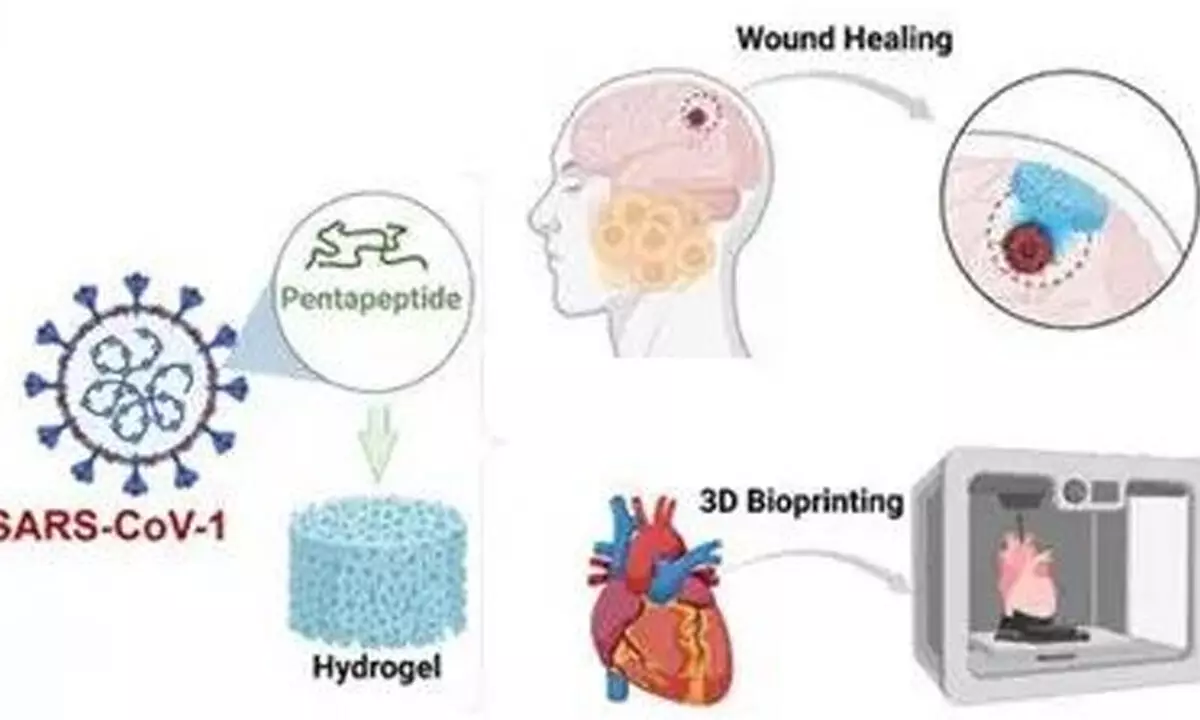New hydrogel created using SARS-CoV-1 protein fragments

Researchers from Bose Institute, an autonomous institute of the Department of Science and Technology (DST) in Kolkata, have developed a new way to create hydrogels using tiny protein fragments of just five amino acids from the SARS-CoV-1 virus.
New Delhi: Researchers from Bose Institute, an autonomous institute of the Department of Science and Technology (DST) in Kolkata, have developed a new way to create hydrogels using tiny protein fragments of just five amino acids from the SARS-CoV-1 virus.
The novel method may help improve targeted drug delivery and reduce side effects.
Hydrogels are known to be suitable for drug delivery because of their swelling behaviour, mechanical strength, and biocompatibility. While short peptide-based hydrogels have great potential for a wide range of applications, it is very challenging to control the gelation of these systems.
A team of researchers at the Department of Chemical Sciences in Bose Institute, led by Professor Anirban Bhunia, explored the inherent self-assembling properties of the SARS-CoV-E protein. Their study unravelled a new way to create useful gel materials.
The team also collaborated with scientists from the Indian Institute of Science, Bangalore, the University of Texas Rio Grande Valley, US, and the Indian Association for the Cultivation of Science, Kolkata.
Their findings, published in the prestigious journal Small (Wiley), showed that gels made up of pentapeptides with unique properties can be developed by rearranging just five amino acids of the SARS-CoV-1 virus.
The team found that some of them gel when heated, others at room temperature.
“This unique discovery could lead to significant medical advancements like customisable hydrogels that can improve targeted drug delivery enhancing treatment efficacy while reducing side effects,” said the team.
Further, the materials can revolutionise tissue engineering, potentially aiding in organ regeneration. These gels might also advance wound healing treatments and enable more accurate disease modelling for research, the team said.














